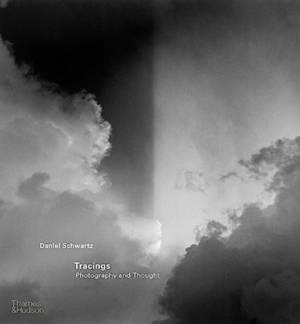
- Afhalen na 1 uur in een winkel met voorraad
- Gratis thuislevering in België vanaf € 30
- Ruim aanbod met 7 miljoen producten
- Afhalen na 1 uur in een winkel met voorraad
- Gratis thuislevering in België vanaf € 30
- Ruim aanbod met 7 miljoen producten
Zoeken
€ 69,95
+ 139 punten
Omschrijving
The first longterm appraisal of the photography of Daniel Schwartz.
Daniel Schwartz's photographs explore human activities set against an immense range of political geography and cultural history, touching on such monumental themes as imperial warfare, ancient history, environmental collapse and the vanishing cryosphere. Tracings reveals a body of work that is humanistically motivated and anchored in reality, blurring the divide between photojournalism and art.
Positioning Schwartz's work to date in the wider history of the medium, Tracings draws together themes tackled in five monographs concerned with cultural history, political geography and the environment published by Thames & Hudson between 1986 and 2017. Essays by Beat Wismer, Giovanna Calvenzi and Carolin Emcke examine the ways Schwartz's documentary photography intersects with the arts; look at photographic affinities and methods in Schwartz's work, analysing the narrative of his previous books; and study Schwartz's depiction of the individual at work, and how photographs of human activities are interwoven with photographs of nature.
Tracings is not so much a retrospective as a project tracing and continuing an evolutionary line through all Schwartz's projects to date.
Daniel Schwartz's photographs explore human activities set against an immense range of political geography and cultural history, touching on such monumental themes as imperial warfare, ancient history, environmental collapse and the vanishing cryosphere. Tracings reveals a body of work that is humanistically motivated and anchored in reality, blurring the divide between photojournalism and art.
Positioning Schwartz's work to date in the wider history of the medium, Tracings draws together themes tackled in five monographs concerned with cultural history, political geography and the environment published by Thames & Hudson between 1986 and 2017. Essays by Beat Wismer, Giovanna Calvenzi and Carolin Emcke examine the ways Schwartz's documentary photography intersects with the arts; look at photographic affinities and methods in Schwartz's work, analysing the narrative of his previous books; and study Schwartz's depiction of the individual at work, and how photographs of human activities are interwoven with photographs of nature.
Tracings is not so much a retrospective as a project tracing and continuing an evolutionary line through all Schwartz's projects to date.
Specificaties
Betrokkenen
- Auteur(s):
- Uitgeverij:
Inhoud
- Aantal bladzijden:
- 192
- Taal:
- Engels
Eigenschappen
- Productcode (EAN):
- 9780500026342
- Verschijningsdatum:
- 14/09/2023
- Uitvoering:
- Hardcover
- Formaat:
- Genaaid
- Afmetingen:
- 238 mm x 254 mm
- Gewicht:
- 1256 g

Alleen bij Standaard Boekhandel
+ 139 punten op je klantenkaart van Standaard Boekhandel
Beoordelingen
We publiceren alleen reviews die voldoen aan de voorwaarden voor reviews. Bekijk onze voorwaarden voor reviews.











